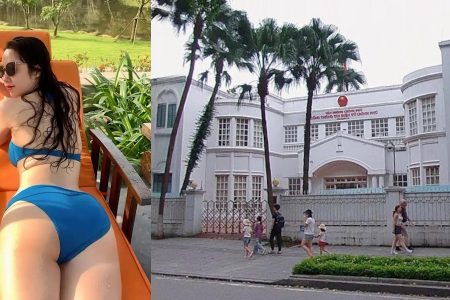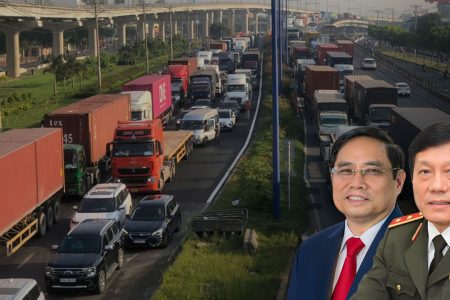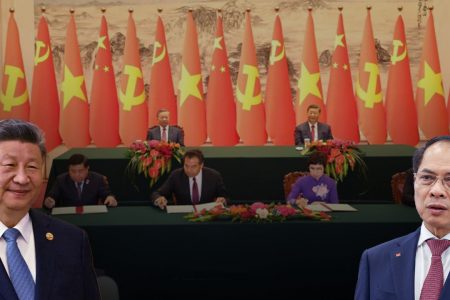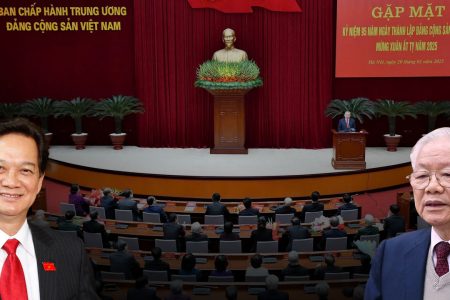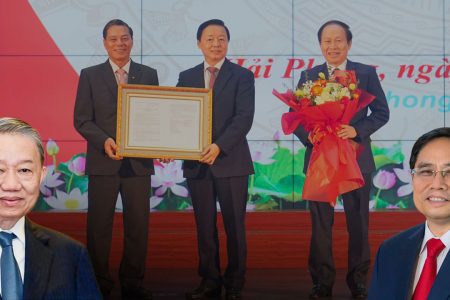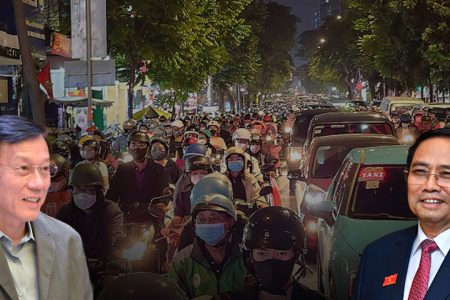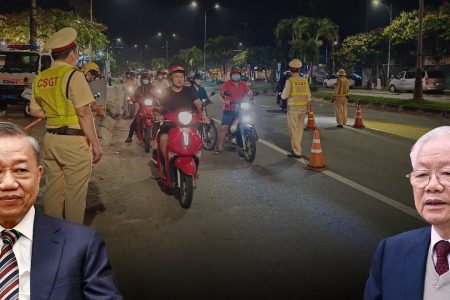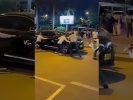
International human rights organizations on July 22 voiced their opposition to the sentence that the People’s Court of Duc Hoa district, Long An province, had just imposed on six people belonging to a family-based religious group, Tinh That Bong Lai, also known as Thien Am Ben Bo Vu Tru. Human Rights Watch even called this a new point in the campaign to suppress human rights in Vietnam when jailing an elderly man in his 90s because he dared to express his opinion.
On July 21, six members of the Bong Lai Tinh That were sentenced to a total of more than 23 years in prison for the charge of “abusing democratic freedoms to infringe upon the interests of the State, the legitimate rights and interests of the organization and/or individuals” according to Clause 2, Article 331 of the Criminal Code.
The court’s pronouncement of harsh sentences, especially the five-year prison sentence for Mr. Le Tung Van, who is over 90 years old, has attracted attention.
The indictment of the People’s Procuratorate of Long An province alleges that the people of the Bong Lai Tinh That led by Mr. Le Tung Van posted many articles and clips on social networks Facebook and YouTube between 2019 and 2021 untrue, fabricated, and distorted information aimed at propagandizing, inciting, insulting the reputation of the Duc Hoa District Public Security Agency, offending Buddhism, and insulting the honor and dignity of Mr. Chan Ngoc Thao (ie Venerable Thich Nhat Tu).
Article 331 of the Criminal Code is used in politically charged cases to charge dissidents with the Communist Party. International human rights organizations have repeatedly criticized and asked the Vietnamese government to abolish this law.
Talking to Radio Free Asia via email, Phil Robertson, deputy director of the Asia division of Human Rights Watch, said that imprisoning people at Tinh That Bong Lai for their statements shows that the Vietnamese government has become more authoritarian:
“Putting a 90-year-old man in jail just because he dared to speak his mind shows that the Vietnamese government has taken its campaign to suppress human rights to a new point.
By using draconian legislation to silence ordinary citizens who have simply complained about local civil servants, the Vietnamese government shows that it is now more than just oppressing activists.”
Through the fact that non-political individuals such as members of the Tinh That Bong Lai are now also arrested for speaking online, Phil Robertson believes that the regime in Vietnam is showing that they are becoming more and more hostile against criticism.
The representative of the US-based human rights organization also called on the Vietnamese government to release the prisoners:
“Vietnam needs to overturn ridiculous judgments and unacceptable sentences against all the individuals in Tinh That Bong Lai.”
At the same time, Amnesty International, an international human rights organization based in the UK, also expressed its objection to the outcome of the trial on July 21. Ms. Ming Yu Hah, Deputy Regional Director of Amnesty International’s East and Southeast Asia, said:
“To accuse someone of taking advantage of democratic freedoms is actually an excuse to silence voices critical of the government. In the first half of this year alone, articles 331 and 117 have been repeatedly abused to arrest and prosecute bloggers, religious believers, and Facebook users for their activities on the social network.
Today, anyone in Vietnam risks being jailed for years for practicing freedom of expression.”
This situation was described by Ms. Ming Yu Ha as “unacceptable and intolerable.” She also called on the Vietnamese government to end its suppression of freedom of expression and to release those persecuted.
Article 117 on anti-State propaganda and Article 331 are national security provisions in the Criminal Code. Since the beginning of the year, at least 19 people have been detained by the Vietnamese government for alleged violations of these articles, according to statistics compiled by RFA.
Thoibao.de (Translated)



